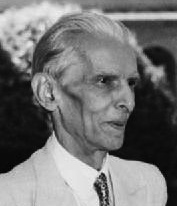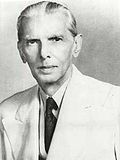| ||
|---|---|---|
Governor-General of Pakistan ContentsPolitical views Properties  | ||
The Fourteen Points of Jinnah, also known as Jinnah's Fourteen Points, was a political proposal, presented in 1929, by Muhammad Ali Jinnah for future constitutional reforms in British India. They constituted the Muslim League's response to the Nehru report with demands to safeguard Muslim political rights.

It consisted of the four Delhi proposals, the three Calcutta amendments, demands for the continuation of separate electorates and reservation of seats for Muslims in government services and self-governing bodies. In 1928, an All Parties Conference was convened in reaction to the Simon Commission appointed to discuss parliamentary reform in British India. A committee was set up under Motilal Nehru which prepared the "Nehru Report". This report demanded "Dominion Status" for British India. Separate electorates were refused and the reservation of seats for the Muslims of Bengal and Punjab was rejected. The Nehru Report did not uphold a single demand of the Muslim League.

In reaction to the Nehru Report, the League authorised Jinnah to draft terms for the basis of any future constitution for British India, which would protect the interests of the Muslims. He presented his 14 points and stated it was the "parting of ways" and that he did not want anything to do with the Indian National Congress in the future. The points gave the Muslim League a direction and framework of its demands, and greatly influenced the Muslims' thinking for the next two decades until the establishment of Pakistan in 1947.





